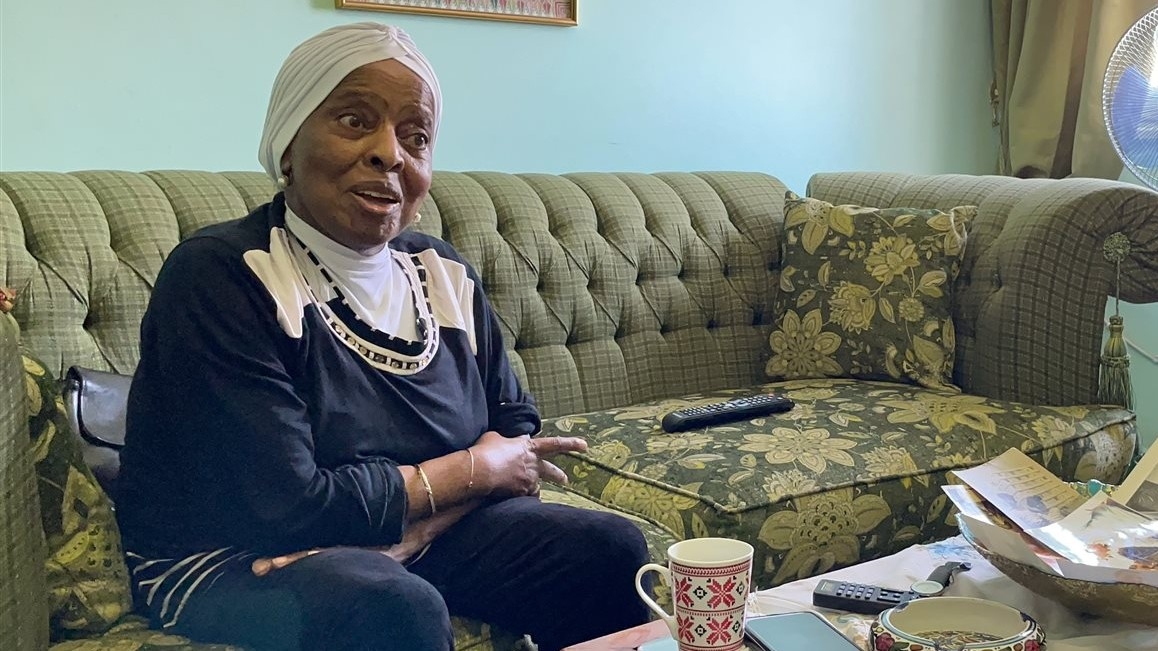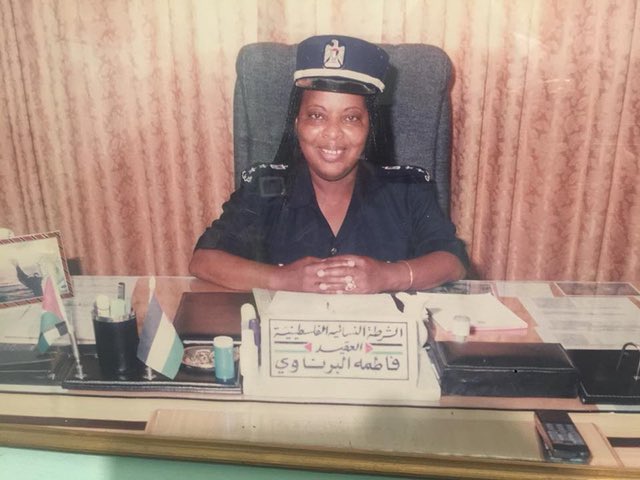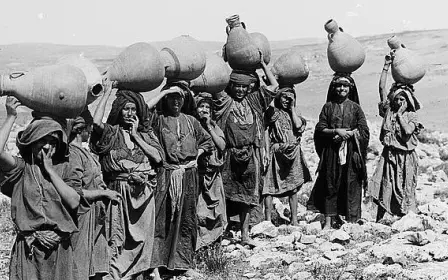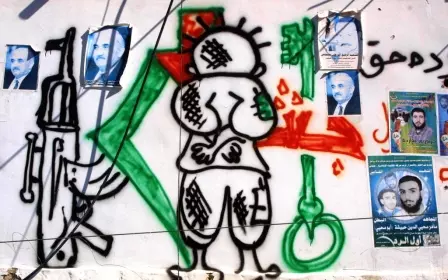Fatima Barnawi, founder of Palestinian Women's Police and veteran prisoner, dies at 83

Fatima Barnawi, a veteran Palestinian policewoman and the first female political prisoner held in an Israeli jail, died at the age of 83 on Thursday in a hospital in the Egyptian capital Cairo.
Barnawi was born in 1939 in the Old City of Jerusalem under the British Mandate. She grew up in a community of families from sub-Saharan Africa who had come to Jerusalem for pilgrimage or trade and stayed in the city.
Barnawi's father was Nigerian, her mother was Palestinian-Jordanian. Following the Nakba in 1948, she moved to Jordan with her parents and five siblings for a few years, before returning to Jerusalem.
Zion cinema attack
New MEE newsletter: Jerusalem Dispatch
Sign up to get the latest insights and analysis on Israel-Palestine, alongside Turkey Unpacked and other MEE newsletters
She was one of the early members of Fatah, the Palestinian national liberation movement in the West Bank, under Jordanian rule.
In October 1967, Barnawi became the first woman to be arrested by Israeli forces. She spent nearly 11 years in prison for her activism against the nascent military occupation of East Jerusalem, the West Bank and the Gaza Strip, which began that June.
'I've never regretted what I did, and if time went back, I would have done more than I did in the past'
- Fatima Barnawi
An Israeli military court sentenced her to life in prison for planting explosives in Zion cinema, in West Jerusalem, which was frequented by Israeli soldiers. An Israeli guard found the bag of explosives minutes before they were due to detonate. Her sister and another Fatah member were also arrested and tried in relation to the attack, but later released.
Fatah, the ruling party of the Palestinian Authority (PA), described Barnawi as a "great fighter".
"[She] joined the Palestinian revolution at an early stage, and had a key role in establishing the organisational and guerrilla cells of the Fatah movement inside the occupied territories," the movement said.
Palestinian Women's Police
Barnawi was deported to Lebanon in 1977, where she joined Fatah as a nurse and rose the movement's ranks, putting her in close contact with Yasser Arafat, the head of the group and the chairman of the Palestine Liberation Organisation (PLO).
In 1985, Barnawi married Fawzi al-Nimr, the founder and leader of the Akka 778 militant group, which launched attacks against targets inside Israel. Nimr was sentenced to 710 years in prison in 1969 but was released in a prisoner exchange deal with Israel in 1983. He died last year.
Following the the signing of the Oslo Accords between the PLO and Israel in 1993, Barnawi returned with the PA to the Gaza Strip and was tasked by Arafat to set up the Palestinian Women's Police.
Barnawi became a colonel, and lead 30 policewomen. By July 2022, the all-female police force had 532 officers.
Palestinian President Mahmoud Abbas awarded Bernawi the Military Star of Honour in 2015.
"Bernawi will remain a shining historical mark in the history of the Palestinian national struggle," Fatah said on Thursday.
"The movement's leaders and cadres will continue their struggle until the national rights that Bernawi fought for, represented by the establishment of an independent, sovereign Palestinian state with Jerusalem as its capital, are achieved," it added.
'I would have done more'
The Palestinian Prisoner's Club said that it had "lost a national role model who left an important national heritage and contributed to the Palestinian struggle for decades".
Bernawi was also a member of Fatah's Revolutionary Council, the Supreme Military Council of the Palestinian Revolution, the Palestinian National Council and the General Union of Palestinian Women.
She graduated as a nurse in 1956 and travelled to work in a hospital in Saudi Arabia for two years, returning to the West Bank in the 1960s.
In her last interview this July with the Egyptian newspaper Albawaba, Bernawi described her time in the Israeli prison, growing up in Jerusalem, and then her work with Fatah in Lebanon, Tunisia and the Gaza Strip.
"So many memories, and life passed like in a glimpse. I've never regretted what I did, and if time went back, I would have done more than I did in the past," she said.
Middle East Eye delivers independent and unrivalled coverage and analysis of the Middle East, North Africa and beyond. To learn more about republishing this content and the associated fees, please fill out this form. More about MEE can be found here.




